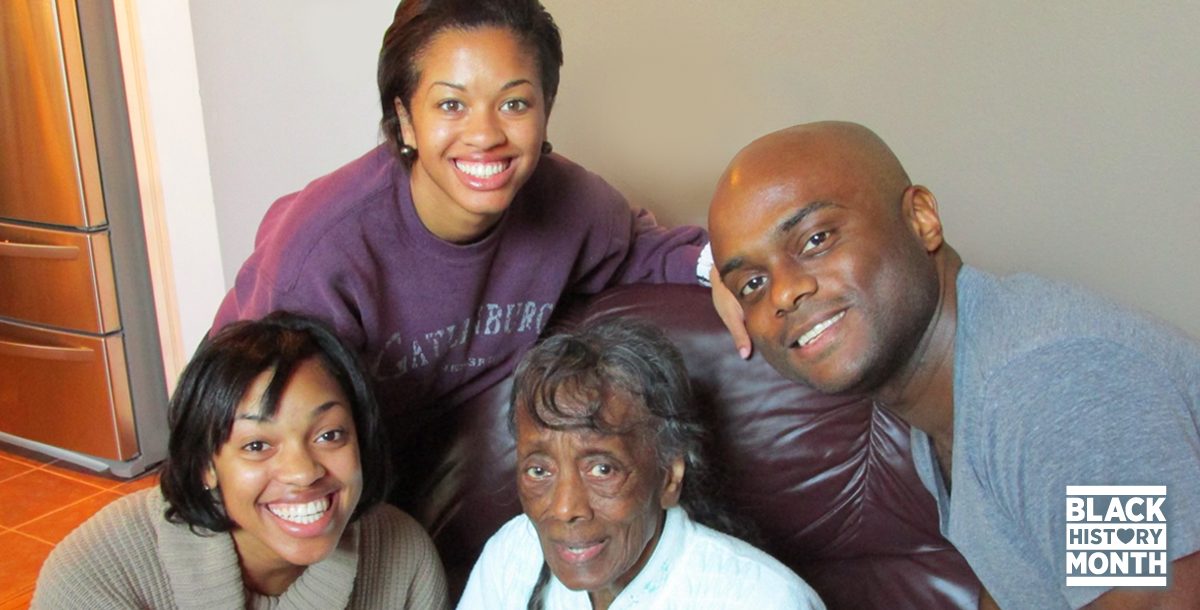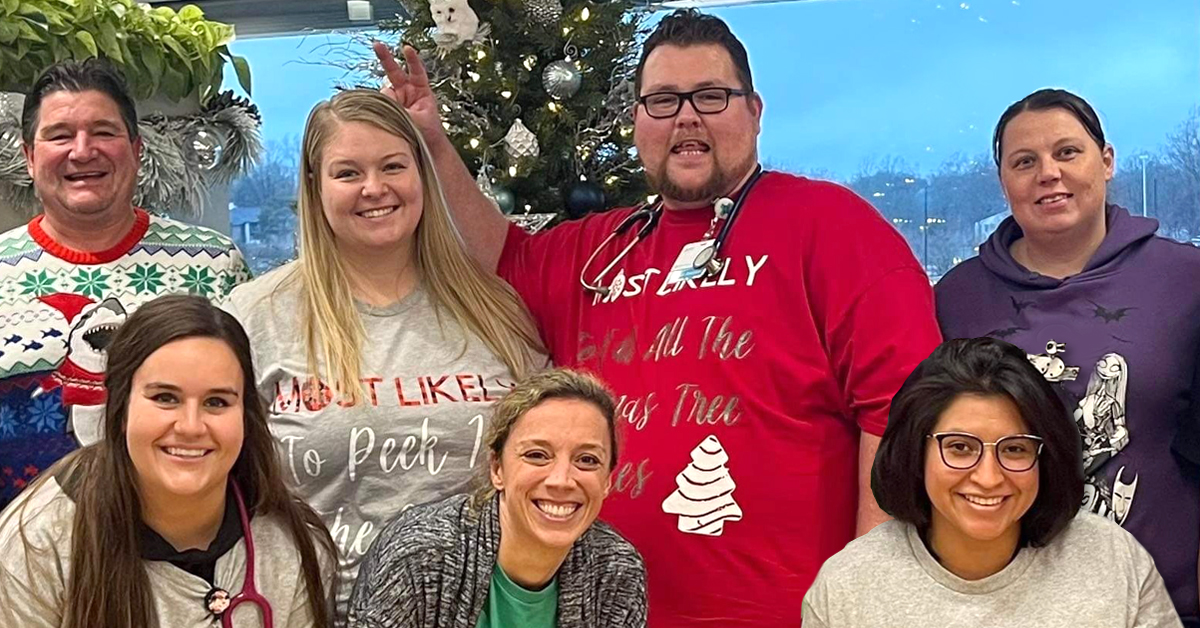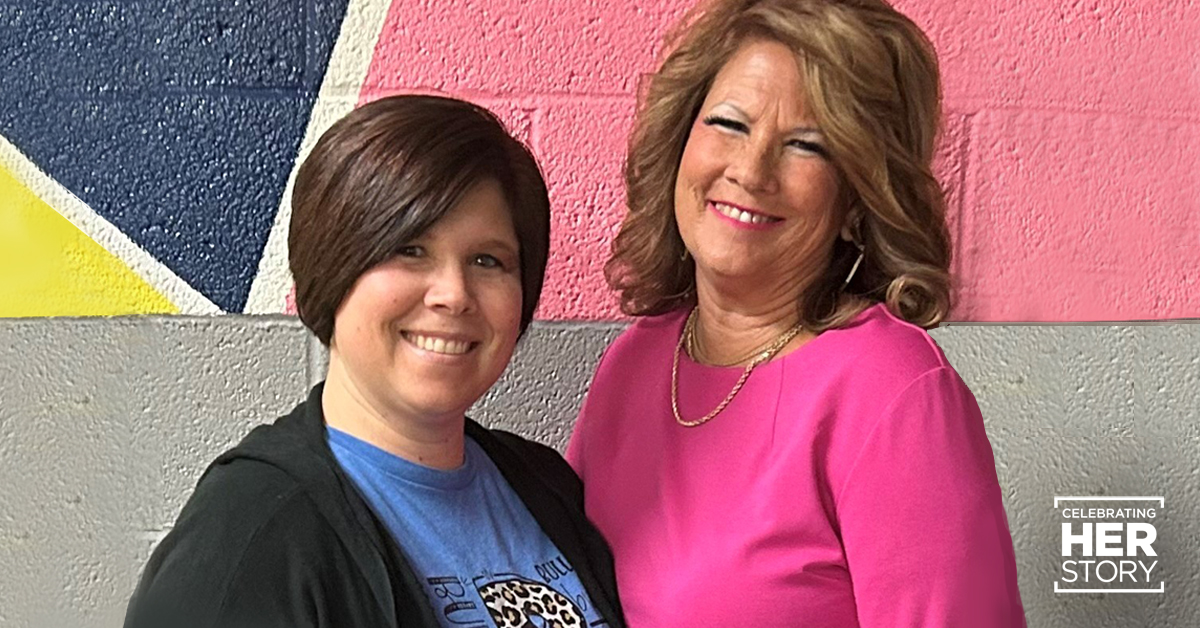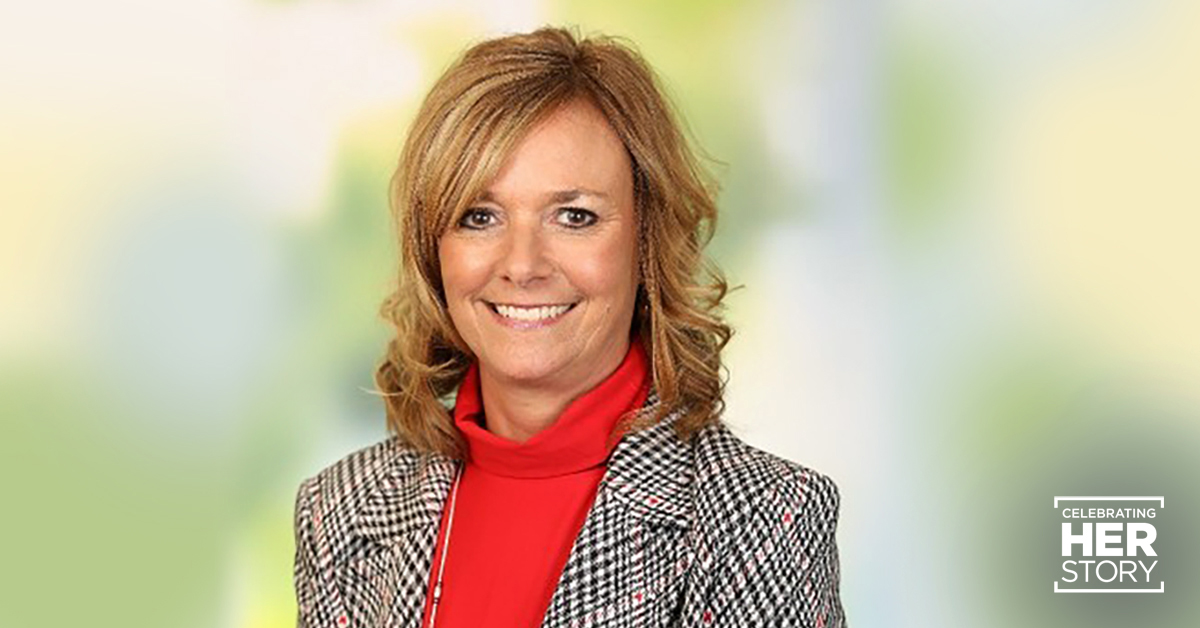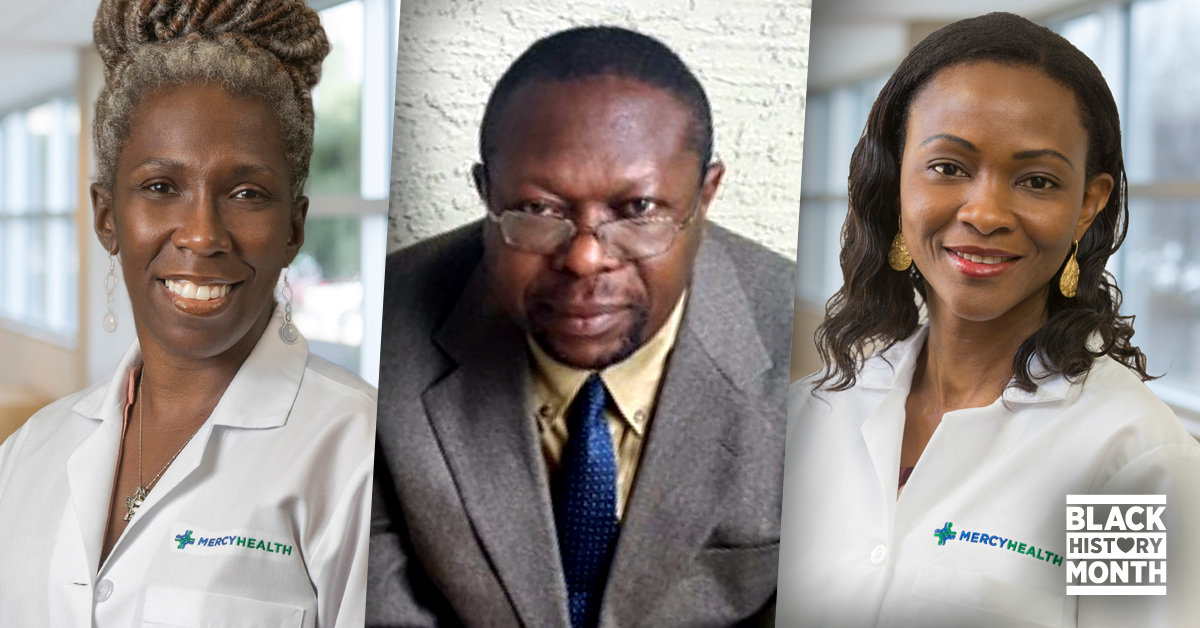For Joinne’ Chandler, Black history goes beyond a single month. It is rooted in family traditions of activism, education and celebrating achievements.

For the past eight years, Joinne’ has been part of the ministry’s marketing team, most recently as a marketing director of brand strategy and new business.
“I fell in love with the mission and organization and have been here ever since!” she shares.
However, her role with our ministry isn’t her first experience with health care.
“My grandfather was a doctor and then my father took over his practice,” Joinne’ explains. “I worked at his office when I was younger.”
Family tradition of activism
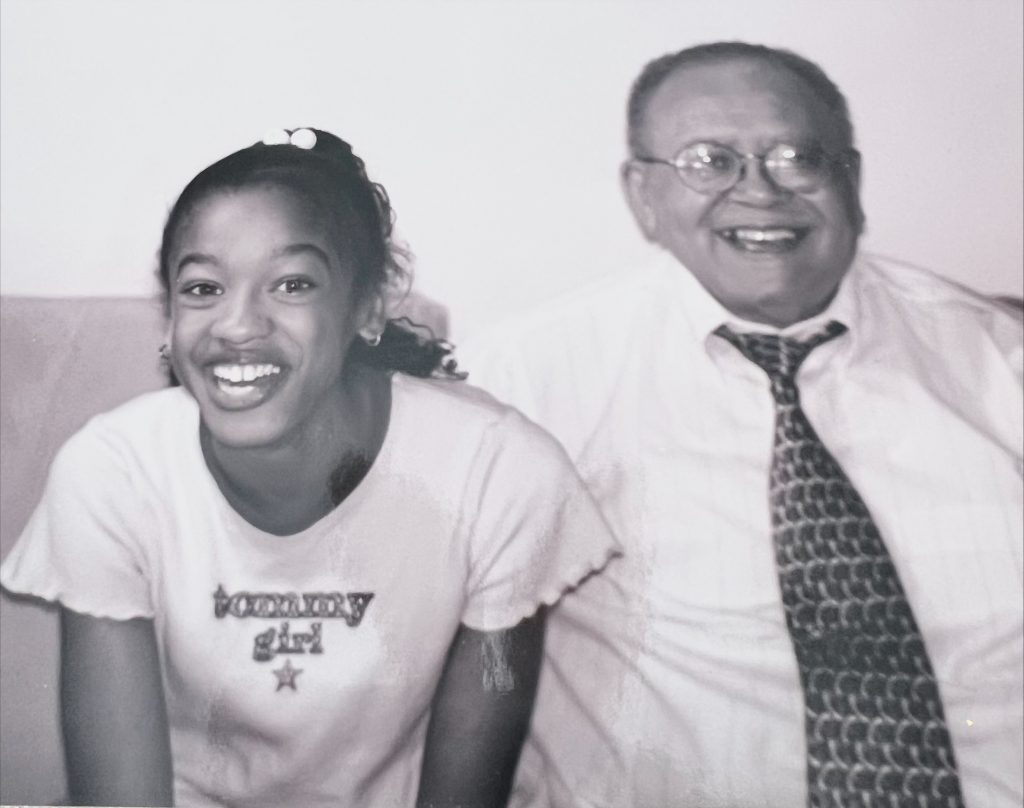
It was her grandfather, James Montgomery, MD, who set the stage for Joinne’s path to health care. Dr. Montgomery practiced internal medicine in Birmingham, Ala. for more than 30 years. He integrated Birmingham hospitals and served as a key leader at Holy Family Hospital, a facility dedicated to the care of African Americans.
Before becoming a doctor, he attended Morehouse College, one of the historically black colleges and universities (HBCU). He eventually earned his medical degree from another HBCU, Howard University. Dr. Montgomery also obtained fellowship training in cardiology in Boston, Mass.
In 1963, Dr. Montgomery had a historic encounter. It was the height of the civil rights movement and a time of social unrest. Dr. Martin Luther King Jr. was arrested and jailed during anti-segregation protests. During Dr. King’s time in jail, Dr. Montgomery was the doctor who cared for him. The two became quick friends as both attended Morehouse and were both Alpha Phi Alpha fraternity members.
Dr. Montgomery continued his community work through activism for equality. He ran for public office, integrated hospitals and worked to increase registration of Black voters.
This spirit of change and activism continues today with Joinne’ and her family.
“My dad always encouraged me to speak up if I saw something wrong,” Joinne’ shares.
For example, as a child she noticed her school didn’t celebrate Black History Month. Joinne’ took this observation to the principal and was told, “there was a banner in the library.”
That response didn’t sit well with Joinne’.
“I told my dad and he asked, ‘what are you going to do about it?’ That is when I decided to write, produce and perform a play at school. It was about Black history and inventors.”
Family tradition of education
Another key influence for Joinne’ was her grandmother, who went to HBCU Spelman College at age 14 and graduated at 18. She then went on to get her master’s degree in education at University of Southern California. After graduating she became a teacher, teaching at an all-Black high school.
“My grandmother and grandfather are inspiring,” Joinne’ shares. “They both were always looking around to see who they could help. Leverage their profession to open doors for others. They were selfless.”
Joinne’ continues this love of learning not just at home but also in the community. Joinne’ and her husband teach their children about the key contributions of Black people.
Joinne’ adds, “there are so many things that we use every day — stop lights, elevators, peanut butter, hair products — that were created by Black inventors.”
The couple also reads at their kids’ schools about Black history as well as lead their church’s teen ministry and lend a hand with marketing.
Family tradition of celebrating achievements
For Joinne’, celebrating firsts for Black people is bittersweet.
“It is important to celebrate these achievements, but the fact that they are still happening shows how far we still have to go.”
Joinne’ says it is important to educate her children about key figures in Black history.
“We talk about current events, like Kamala Harris being the first Black and first female vice president.”
Her family even has their own firsts that they celebrate. Her grandfather was the first person in their family to be a doctor. Joinne’s husband is the first physician in his family as well.
Part of celebrating firsts is reflecting on our ministry’s efforts to improve diversity within the ministry.
“The more diverse our organization is, the more we can service the needs of an entire community and solve health care disparities,” Joinne’ states.
From her perspective it is important for our patients, employees and communities to see someone who looks like them.
“It is inspirational to see that. Often there are shared experiences with someone from a cultural perspective that helps eliminate unconscious and conscious biases which can get in the way.”
Joinne’ is just one of our many team members who contribute to our ministry’s Mission. We are honored by her commitment.
Also, read more Black History Month stories about our team members.


